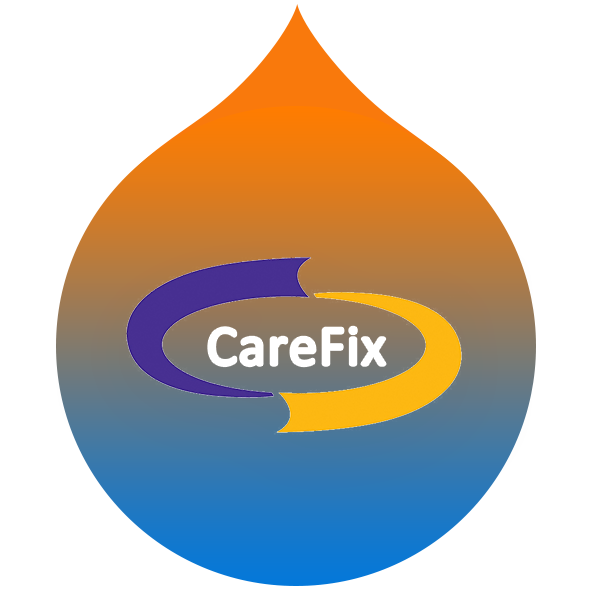Հնդկաստանի առաջատար կոնգլոմերատը ներխուժում է բժշկական սարքերի շուկա
Վերջերս Tata Elxsi-ն, Հնդկաստանի ամենամեծ կոնգլոմերատ՝ Tata Group-ի մասնաճյուղը, հայտարարեց Գլոբալ բժշկական սարքերի տեխնոլոգիական կենտրոնի պունեում, Հնդկաստանում ստեղծման մասին՝ հիմնականում կենտրոնանալով մոլեկուլային պատկերացման տեխնոլոգիաների վրա: Բացահայտվել է, որ Tata Elxsi-ն կհամագործակցի Bayer-ի հետ՝ զարգացնելու առաջադեմ ռադիոլոգիական սարքավորումներ և տեխնոլոգիաներ, որոնք թույլ կտան վաղ և ճշգրիտ ախտորոշում կատարել ու բուժել ծանր հիվանդություններ:
Որպես Հնդկաստանի խոշորագույն կոնգլոմերատ՝ Tata Group-ը ներկայում է առողջապահության, պողպատի, ավտոմոբիլային, էլեկտրաէներգիայի և այլ ոլորտներում: 2024 թվականին ընկերությունը համախառն եկամուտ է գրանցել՝ գերազանցելով 168 միլիարդ ԱՄՆ դոլարը, իսկ շուկայական կապիտալացումը կազմել է 365 միլիարդ ԱՄՆ դոլար, որը Հնդկաստանի ՀՆԱ-ի մոտ 6 %-ն է:
01 Գործընկերություն Bayer-ի հետ
Tata Elxsi-ն հիմնելու է «Bayer Radiology Development Center»-ը Հնդկաստանում՝ ինտեգրելով սարքավորումների նախագծման, մշակման և վավերացման հնարավորությունները՝ նոր տեխնոլոգիաները շուկա ներդրելու արագացման համար՝ համապատասխանելով խիստ կարգավորողական համապատասխանության չափանիշներին:
Սրիվացա Սահասրանաման, Տատա Էլքսիի առողջապահության և կենդանի գիտությունների բաժնի ավագ փոխնախագահ և ղեկավար՝ նշել է. «Այս կենտրոնը ճարտարագիտական հաստատությունից ավելին է. այն միավորում է Bayer-ի ռադիոլոգիայի տեսլականը Tata Elxsi-ի դիզայնի, արհեստական ինտելեկտի/մեքենայական ուսուցման և կանոնակարգային համապատասխանության փորձառության հետ: Մեր թիմերը համատեղ աշխատելու են, որպեսզի այս տեսլականը վերածեն սարքերի, որոնք կլուծեն իրական աշխարհի ախտորոշման մարտահրավերները՝ ապահովելով անվտանգությունը, համապատասխանությունը և գլոբալ մասշտաբավորումը»:
Տատա խմբի գործունեությունները տարածված են հեռահաղորդակցության և ԻՏ, ճարտարագիտության, նյութերի, ծառայությունների, էներգետիկայի, սպառողական ապրանքների և քիմիական նյութերի ոլորտներում, ինչը այն դարձնում է Հնդկաստանի գործունեության անբաժանելի մաս: Նրա արժեքային 67%-ը պատկանում է բարեգործական հիմնադրամներին, իսկ շահույթը ուղղվում է առողջապահության, կրթության և այլ նախաձեռնությունների զարգացմանը: Խումբը նաև կառավարում է բազմաթիվ հիվանդանոցներ և կառավարում T տատա Կապիտալ Առողջապահության Ֆոնդ , որը հատուկ նախատեսված է առողջապահության ոլորտում ներդրումների համար:
Բայերի ախտորոշիչ վիզուալիզացիայի ներդրումները հիմա ընդգրկում են CT, MRI և PET-CT-ն ներառող լիարժեք սցենարներ, ձևավորելով լրիվ լուծումների էկոհամակարգ՝ կոնտրաստային նյութերից ու ներարկման սարքերից մինչև տեղեկատվական կառավարում: Օգտագործելով Tata Group-ի հզոր էկոհամակարգը Հնդկաստանում և Tata Elxsi-ի առողջապահության ոլորտի փորձագիտական գիտելիքները, համագործակցությունը կուժեղացնի Բայերի ռադիոլոգիական լուծումներ տրամադրելու կարողությունը ԱՄՆ և ԵՏ նման շրջաններում:
Բայերի ռադիոլոգիայի R&D բաժնի պետ Կոնստանցե Դիֆենբախի դոկտորը նշել է. «Բայերը նվիրված է ախտորոշիչ վիզուալիզացիայի նորարարական արտադրանքներին և բարձրորակ ծառայություններին: Սարքավորումների նորարարությունը կարևոր է հիվանդների խնամքի ճշգրտությունն ու անվտանգությունը բարձրացնելու համար: Այս նոր կենտրոնը մեզ տալիս է ուղղակի մուտք Tata Elxsi-ի մասնագիտացված ինժեներական հնարավորություններին, որը արագացնում է մեր առաջադեմ ռադիոլոգիական սարքավորումների մշակման գործընթացը՝ պահպանելով այն հուսալիությունը, որը բժշկական օգնություն տրամադրողները սպասում են Բայերից»:
Բանգալորում գտնվող գրասենյակից աշխատում է Tata Elxsi-ն, որը գործում է առողջապահության, ավտոմոբիլային, հեռուստադիտման և կոմունիկացիաների համար նախատեսված սպառողական էլեկտրոնիկայի ոլորտներում: Նրա առողջապահության և կենսաբանական գիտությունների բաժինը I SO 13485 սերտիֆիկացված է և համագործակցում է բժշկական սարքավորումների ու դեղագործական արտադրանքների OEM-ների հետ, ինչպես նաև տեխնոլոգիական ընկերությունների հետ: Tata Elxsi-ն իր ծառայությունների և լուծումների առաջարկացանկի միջոցով արժեք է ավելացնում ամբողջ արտադրանքի մշակման կյանքի ցիկլի ընթացքում և ճանաչվում է որպես տեխնիկական խորհրդատվության, նոր արտադրանքների նախագծման, մշակման, ստուգման ու վավերացման և կանոնակարգային համապատասխանության ծառայությունների առաջատար:
02 Tata Group-ը արագացնում է բժշկական սարքավորումների ոլորտ մուտքը
Հնդկաստանի բժշկական սարքերի շուկան արագ է աճում՝ 2020 թվականին հասնելով 11 միլիարդ ԱՄՆ դոլարի և կանխատեսվող 50 միլիարդ ԱՄՆ դոլարի 2025 թվականին: Ներկայումս Հնդկաստանը բարձր կերպով կախված է բժշկական սարքերի ներմուծումից՝ մոտավորապես 75%-80% ստացվում է օտարերկրյա աղբյուրներից, որտեղ հիմնական մատակարարներն են ԱՄՆ-ն, Գերմանիան և Չինաստանը: Այս աճի շարժիչներն են 1,4 միլիարդանոց բնակչությունը, ծերացող շերտի աճը, միջին խավի եկամուտների ընդլայնումը և քաղաքական աջակցությունը «Դարձրու Հնդկաստանում» նախաձեռնության միջոցով:
Ի պատասխան՝ Tata Group-ը մշակել է 2025 թվականի համար բժշկական սարքերի ոլորտի ռազմավարություն՝ ուղղված ինչպես ներքին, այնպես էլ գլոբալ շուկաներին: Ինչպես նշված է ընկերության պաշտոնական կայքում, վերջին տարիներին բժշկական սարքերի ոլորտը զգալի փոփոխություններ է կրել՝ տեխնոլոգիաների ներդրումը արագանում է աննախադեպ տեմպերով: Թվային կերպով միացված կրելի սարքերից մինչև արհեստական ինտելեկտով աշխատող ախտորոշման գործիքներ՝ այսօրվա առողջապահական համակարգը պահանջում է այնպիսի արտադրանքներ, որոնք միաժամանակ կլինիկորեն արդյունավետ են և օգտատերերի համար հարմարավետ:
Ընկերությունը նշում է բժշկական սարքերի մշակման ձևավորման երեք հիմնական գործոններ.
1. Պացիենտներին կենտրոնացված դիզայն . Այժմ հիվանդները սպասում են, որ բժշկական արտադրանքները ապահովեն ինտուիտիվ, սպառողական մակարդակի փորձառություն, ինչը օգտագործելիության ճարտարագիտությունը դարձնում է արտադրանքի մշակման հիմնական մաս: Ընկերությունները, որոնք դիզայնի վաղ փուլերում ներառում են օգտագործողի տեսանկյունները, զգալիորեն բարելավում են հիվանդների հետևողականությունն ու բավարարվածությունը:
2. Բարդ կարգավորողական շրջակա միջավայր գլոբալ կարգավորող մարմինների խիստ վերահսկողությունը ընդգծում է համապատասխանության խորհրդատվության կարևորությունը: Քանի որ շուկաները ընդլայնվում են՝ հատկապես ԱՄՆ-ում, ԵԱՀ-ում և Ասիայում, սարքերի նախագծողները ստիպված են համապատասխանել տարբեր կարգավորող պահանջների՝ պահպանելով միատեսակ որակի ստանդարտներ:
3. Թվայնացման վերափոխում . Ուղղված է առողջապահության և թվային տեխնոլոգիաների ինտեգրմանը: Ամպային հարթակները, արհեստական ինտելեկտի վրա հիմնված անալիտիկան և հեռակա խնամքի լուծումները ստիպում են դիզայնի թիմերին լուծել նոր տվյալների անվտանգության և փոխընկալելիության մարտահրավերներ:
Ընկերությունը նաև շեշտադրում է ռազմավարական գործընկերությունների ձևավորումը: Այսպիսի գործընկերությունները, անկախ համապատասխանության խորհրդատվությունից կամ R&D համագործակցությունից, արագացնում են սարքերի մշակումը: Արտաքին փորձագետների հետ համագործակցությունը՝ CRO-ներից մինչև համալսարանական լաբորատորիաներ, ընդարձակում է փորձագիտական գիտելիքները և կրճատում նորարարության ցիկլերը:
Բայերից բացի, Տատա Խումբը վերջերս համագործակցություն է սկսել ինչպես տեղական, այնպես էլ օտարերկրյա առողջապահական կազմակերպությունների հետ: Անցյալ տարի այն միացել է Սկանրեյ-ին՝ առաջադեմ վիրահատական նկարահանման համար հիմնարար տեխնոլոգիաների և ծրագրային պլատֆորմների մշակման համար ռազմավարական գործընկեր, որը միջազգային առաջատար է բժշկական նկարահանման R&D-ում և արտադրությունում: Այս համագործակցությունն ուղղված է ամենահզոր տեխնոլոգիական մոդուլների օգտագործմանը՝ ախտորոշման և բուժման կանխատեսելիությունը, ճշգրտությունը և համապատասխանությունը բարձրացնելու համար: Tata Elxsi-ն կղեկավարի ծրագրային պլատֆորմի վրա հիմնված ախտորոշման մոտեցումը՝ ապահովելով Սկանրեյի ամբողջ նկարահանման, կրիտիկական խնամքի և վիրահատական համակարգերի փոխադարձ գործառույթները, համատեղելիությունը և բազմառեժիմ գործառույթները:
Մայիսին Tata Elxsi-ն կնքեց ռազմավարական գործընկերություն Եվրոպական սպորտային և ֆիզիկական վարժությունների բժիշկների քոլեջի (ECOSEP) սպորտային և ֆիզիկական վարժությունների բժշկությունը վերափոխելու նպատակով: Այս համագործակցությունը կկենտրոնանա AI-ի կիրառման վրա առաջադեմ ախտորոշման գործիքներում, անհատականացված բուժման ծրագրերում, վնասվածքների կանխարգելման կանխատեսողական անալիտիկայում և մարզիկների ֆիզիկական վիճակի իրական ժամանակում հսկման մեջ:
Ընկերությունը նշում է, որ մոտակա տարիներին բժշկական սարքերի ինժեներիան կխորանա թվային և տվյալների վրա հիմնված լուծումներում: Սարքերը ավելի շատ կօգտագործեն ԱԻ ալգորիթմներ ախտորոշման և իրական ժամանակում հսկման համար՝ անցավոր ինտեգրվելով հեռաբժշկության հարթակներին: Այս առաջընթացը պահանջում է ավելի մեծ ուշադրություն կանոնակարգային և օգտագործելիության հարցերին: Քանի որ առողջապահությունը զարգանում է, սարքերի նախագծման ընկերությունները ստիպված են հարմարվել խիստ կանոնակարգերով, թվային կոնվերգենցիայով և հիվանդների աճող սպասելիքներով ձևավորված մի միջավայրին: Օգտագործելով լավագույն պրակտիկաներ՝ ներառյալ օգտագործելիության հետազոտությունները, կանոնակարգային կանխատեսումները և համատեղ համագործակցությունը, ընկերությունները կարող են մշակել առանձնահատուկ սարքեր հիմնական և արագ զարգացող շուկաներում:
Նախկինում Բայերի տեղական հետազոտություններն ու մշակումները Հնդկաստանում կենտրոնացած էին գյուղատնտեսության և դեղագործության շուրջ: Վերջին տարիներին այն ընդլայնել է իր պատենտային պորտֆելը Հնդկաստանում՝ հատկապես ագրոքիմիկատների և ցածր արժեքով դեղամիջոցների ոլորտներում՝ համապատասխանեցնելով տեղական շուկայի պահանջներին: Ախտորոշիչ պատկերացման բնագավառում Բայերը տարածում է մեկ դարի փորձառություն, առաջարկելով առաջատար պորտֆել՝ ներառյալ կոնտրաստային նյութեր CT, X-առէջ և MRI-ի համար, սարքեր կոնտրաստային նյութերի ճշգրիտ կառավարման համար, տեղեկատվական լուծումներ և բժշկական պատկերացման հարթակներ արհեստական ինտելեկտով և այլ կիրառություններով:











